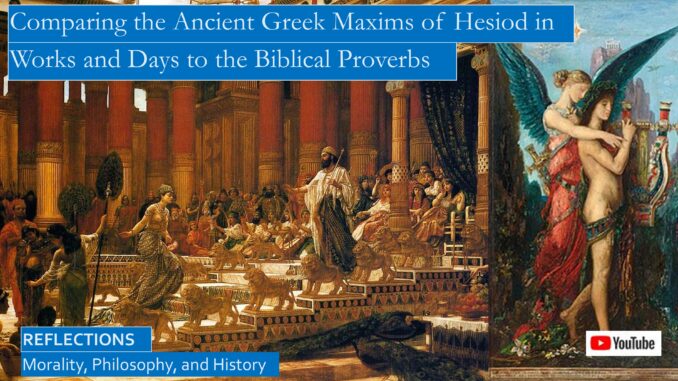
What can we learn by reflecting on Hesiod’s Works and Days? This work was well known and quoted by the ancient Greeks and was likely composed about the same time as Homer’s poems.
What does Works and Days tell us about Greek culture and Greek religion?
Are the maxims of Hesiod an early form of Stoicism? How do they compare to Judaeo-Christian morality, and to the maxims in the Book of Proverbs?
YouTube video for this blog: https://youtu.be/HH9t2eTh8RE
Script for this video, with Amazon book link: https://www.slideshare.net/BruceStrom1/hhesiods-works-and-days-possible-ancient-inspiration-for-pinocchio
WORKS AND DAY BY HESIOD
The works of Hesiod may have been composed at about the same time as the poems of Homer, around the end of the eighth century BC. Our translator has a humorous description of Hesiod:
“Hesiod is a grouchy old farmer who mistrusts ‘lords’” but does not advocate changing the society. “He believes in justice, honesty, conventional piety, self-reliance, self-denial, foresight, and above all, WORK. He dislikes city folk, the sea, women, gossip and LAZINESS. He delivers a maxim like ‘Don’t urinate where the Sun can see you’ with the same earnest convict that he advises judges not to take bribes, his brother to avoid pride, and the farmer to get two nine-year-old oxen and a forty-year-old hired hand.”
Hesiod mixes moral maxims with maxims on how to run a farm during the planting, growing, and harvesting seasons, emphasizing the hard back-breaking work and dedication needed to run a small farm in ancient Greece.
Does he exhibit a stoic mentality? Perhaps, but that can be said of any work that prominently includes moral maxims. Like many later Stoic philosophers, he mostly refers to Zeus as if he were a monotheistic god dispensing justice and encouraging virtue, although it would be more accurate to say this is a henotheistic belief system, since Zeus seems to be the embodiment of all the gods.
Hesiod’s Works and Days begins with:
“Pierian Muses, bringers of fame: come
Tell of your father, Zeus, and sing his hymn,”
“With ease he strengthens any man; with ease
He makes the strong man humble and with ease
He levels mountains and exalts the plain,
Withers the proud and makes the crooked straight.” [1]
Does this sound familiar? Luke 3 quotes Isaiah when it describes how John the Baptist, the forerunner, prepared the path for Jesus:
A voice cries:
“In the wilderness prepare the way of the Lord,
make straight in the desert a highway for our God.
Every valley shall be lifted up,
and every mountain and hill be made low;
the uneven ground shall become level,
and the rough places a plain.
And the glory of the Lord shall be revealed,
and all flesh shall see it together.”[2]
Is there a connection between these verses in Hesiod or Isaiah, or perhaps they are drawing from a common Mesopotamian saying? They are dissimilar enough that it could be coincidence. Scholars doubt that the ancient Greeks were aware of the Jewish Scriptures, especially since they were likely oral tradition at the time of Hesiod. But we know so little about the ancient world, perhaps there was more awareness of the surrounding cultures than scholars have discovered.
“Strife is no only child. Upon the earth
Two strifes exist,” “their natures differ: for the cruel one
Makes battles thrive, and war; she wins no love.”
But the other “urges even lazy men to work:
A man grows eager, seeing another rich,
From ploughing, planting, ordering his house;
So neighbor vies with neighbor in the rush
For wealth: this Strife is good for mortal men:
Potter hates potter, carpenters compete,
And beggar strives with beggar, bard with bard.”[3]
Hesiod tells us the tale of the races of men,
First the Golden Race, “like the gods they lived with happy hearts,
Untouched by work or sorrow. Vile old age
Never appears, but always lively-limbed,
Far from all ills, they feasted happily.”
“This race was hidden in the ground.
But still, they live as spirits in the earth,
Holy and good, guardians who keep off harm.”[4]
This golden race is also mentioned by Ovid and Plato, but they are succeeded by the silver and bronze races of men, each race is lesser than its predecessor. This is similar to the race of giants in Genesis, the Nephilim.
This is the verse in Genesis: “The Nephilim were on the earth in those days, and also afterward, when the sons of God came in to the daughters of men, and they bore children to them. These were the mighty men that were of old, the men of renown.”
This verse is a puzzle to scholars, many posit that this is from very ancient sources.
Hesiod continues: These are followed by a
“Godlike race of heroes, who are called
The demi-gods, race before our own,
Foul wars and dreadful battles ruined some,” [5]
this was the noble race of men
Who fought in the Trojan War,
many who both divine and mortal parents.
The Iliad, Glory, Honor, Madness and Futility of War: https://youtu.be/7lI2ZQ50wRc
Then “far-seeing Zeus made another race,
The fifth, who live now on the fertile earth.
I wish I were not of this race, that I
Had died before or had not yet been born.
This is the race of iron. Now, by day,
Men work and grieve unceasingly; by night,
The waste away and die. The gods will give
Harsh burdens, will mingle in some good.”
This current fifth race of iron will break all the commandments, they will not honor their parents, they will slander and steal and murder, they will envy.
“The brother-love of past days will be gone.
Men will dishonor parents, who grow old
Too quickly, and will blame and criticize
With cruel words. Wretched and godless, they
Refusing to repay their bringing up,
Will cheat the aged parents of their due.
Men will destroy the towns of other men.
The just, the good, the man who keeps his word
Will be despised, but men will praise the bad
And insolent. Might will be Right; and shame
will cease to be. Men will do injury
To better men by speaking crooked words
And adding lying oaths everywhere.”[6]
Hesiod continues:
“Everywhere harsh-voiced and sullen-faced and loving harm,
Envy will walk along with wretched men.
Last, to Olympus from the broad-pathed Earth,
Hiding their loveliness in robes of white,
To join the gods, abandoning mankind,
Will go the spirits Righteousness and Shame.
And only grievous troubles will be left
For me, and no defense against our wrongs.” [7]
Our translator’s footnote says this, “Shame should perhaps be called honor or sense of shame. Hesiod and Homer lived in what anthropologists call a shame culture, as opposed to a guilt culture, like ours. The chief reason for good behavior in a shame culture is what other people will think. Thus, shame is a good goddess.”
This is seen in classic Greek epic, the Iliad, although I think it would be more accurate to say that shame overrode guilt in ancient warrior cultures, and that guilt overrides shame in modern judicial cultures. One of our overriding themes is that we must understand that all ancient cultures were warrior cultures out of necessity, there were no policemen in ancient times, you had to defend your honor, and all citizens had to defend their city to prevent its destruction, and to prevent the slaying of military age men, and to prevent the enslavement of the women and children.
Warrior Cultures of the Iliad and the American Indians:
https://youtu.be/ynIx-AVI2f8
But Hesiod longs for justice, as does Socrates so many decades later:
“O Perses, follow right; control your pride.
For pride is evil in a common man.
Even a noble finds it hard to bear;
It weights him down and leads him to disgrace.
The road to justice is the better way,
For Justice in the end will win the race
And Pride will lose: the simpleton must learn
This fact through suffering.”[8]
“But there are some who till the fields of pride
And work at evil deeds; Zeus marks them out,
And often, all the city suffers for
Their wicked schemes, and on these men, from heaven
The son of Kronos sends great punishments,
Both plague and famine, and the people die.”[9]
The terrors of the plague are mentioned in the opening chapters of the Iliad. During their raids on the allied cities of Troy, the Greeks carried off many of their young maidens as concubines, King Agamemnon won the young girl Chryseis, while King Achilles won the beauty Briseis. Chryses, father of Chryseis, and priest to Apollo, alone, unarmed, in broad daylight, confidently strides into the armed camp of the Achaeans, seeking to ransom his daughter Chryseis.
The Greeks are awed by the courage of Chryses, but Agamemnon commits an act of hubris by disrespecting the brave Chryses, and the god Apollo sends a calamitous plague to punish Agamemnon for his hubris and for his lack of respect for a priest of Apollo.
Concubines in the Iliad and Old Testament: https://youtu.be/bGHHD7XTvr0
Plague was a constant scourge in the ancient world, and it often spread when those who lived in the country crowded behind the city walls during a military siege. For example, in the beginning of the Peloponnesian War, the plague that swept through crowded conditions behind the walls killed a quarter of the citizens.
Plutarch’s Life of Pericles and the Peloponnesian War https://youtu.be/1ra58mg33nM
Hesiod sings,
“The eye of Zeus sees all, and understands,
And when he wished, marks and does not miss
How just a city is, inside. And I
Would not myself be just, nor have my son
Be just among bad men: for it is bad
To be an honest man where felons rule.”[10]
This is a lesson that Lot, brother of Abraham, learns when he and his family flees the wicked city of Sodom. Remember, Abraham is asking the Almighty, whether he will destroy the righteous with the wicked. He first asks if he will save the city if fifty righteous are found, then forty-five, then thirty, then twenty, but he stops when the Almighty says He will save the city for the sake of ten righteous men. Why does he stop at ten? Simply put, already at ten Abraham sees that some of Lot’s extended family is not among the righteous.[11]
Some advice offered by Hesiod conflicts with Christian virtue, although similar verses can be found in Proverbs:
“O noble Perses, keep my words in mind,
And work till Hunger is your enemy.”
“Hunger always loves a lazy man;
Both gods and men despise him, for he is
Much like the stingless drone, who does not work
But eats and wastes the effort of the bees.”
This overriding emphasis on the value of hard work, to the exclusion of charity, is a theme we also see in the original Pinocchio, where our puppet, after a long, exhausting swim across the sea, finds himself on the shore of the Land of Industrious Bees.
The original Pinocchio: https://youtu.be/SsnZamvvhdw
Hesiod continues:
“In work there is no shame; shame is in idleness.
And if you work, the lazy man will soon
Envy your wealth: a rich man can become
Famous and good.” [12]
Is Greed always Good? Many in our modern culture promote greed, our motivational speakers urge us to paste pictures of the fancy cars and mansions we will buy once we become rich, so we must work hard.
Hard work is indeed good, we are expected to provide for our family and save a nest egg for retirement and emergencies, but Hesiod does not say a word about being generous to our neighbor, about giving alms and taking care of the poor. In contrast, Proverbs has many verses exhorting us to take care of the poor, to be kind to the poor, but just a few verses urging hard work and industry.
Proverbs 11:
How long will you lie there, O sluggard?
When will you arise from your sleep?
A little sleep, a little slumber,
a little folding of the hands to rest,
and poverty will come upon you like a vagabond,
and want like an armed man.[13]
Hesiod observes that it is better to be rich than to be poor:
“A cringing humbleness accompanies
The needy man, a humbleness which may
Destroy or profit him. The humble are
The poor men, while the rich are self-assured.”[14]
But Hesiod warns:
“If a man gets wealth
By force of hands or through his lying tongue,”
And shame is pushed aside by shamelessness,
Then the gods blot him out and blast his house
And soon his wealth deserts him.” [15]
But wealth does not necessarily indicate that God has blessed you.
Proverbs 13 agrees:
Wealth hastily gotten will dwindle,
but he who gathers little by little will increase it.[16]
Hesiod condemns fraud, but he does not seek to love his enemies:
“Shun evil profit, for dishonest gain
Is just the same as failure. Love your friends;”
“Give to him who gives, but not, if he does not.
We give to generous men, but no one gives
To stingy ones. Give is a lovely girl,
But Grab is bad, and she gives only death.
The man who gives ungrudgingly is glad
At heart, rejoicing in his gift, but if
A man forgets his shame and takes something,
However small, his heart grows stiff and cold.”
This is a classic quote by Hesiod that is repeated in Proverbs:
“Don’t let a woman, wiggling her behind,
And flattering and coaxing, take you in;
She wants your barn: Woman is just a cheat.”[17]
For most of the verses that are similar in Proverbs, talks of loose women, he is talking about prostitutes.
Hesiod has much advice on how to run a farm in the ancient world, plus maxims on hard work:
“Don’t put off work until another day,
Or even till tomorrow; lazy men
Who put things off always have unfilled barns.
Constant attention makes the work go well;
Idlers wrestle with ruin all their days.”[18]
“Good habits are man’s finest friend,
And bad habits are his worst enemy.”[19]
“The idle man who lives on empty hope,
And has no way to earn his living, turns
His mind to crime: hope is not good for him
Who sits and gossips when he has no job.”[20]
In ancient Greece, men married late to girls young enough to train:
“Bring home a wife when you are ripe for it;
When you are thirty, not much more nor less,
That is the proper age for marrying.
Your wife should have matured four years before,
And marry in the fifth year. She should be
A virgin; you must teach her sober ways,”
because Greek women married when they were teenagers,
half their husband’s age.
Hesiod notes:
“No prize is better than a worthy wife;
A bad one makes you shiver with the cold;
The greedy wife will roast her man alive
Without the aid of fir, and though he is
Quite tough, she’ll bring him to a raw old age.”[21]
Proverbs 31 is dedicated to the good wife; we will only provide the opening verses:
“A good wife who can find?
She is far more precious than jewels.
The heart of her husband trusts in her,
and he will have no lack of gain.
She does him good, and not harm,
all the days of her life.”[22]
In ancient Greece, aristocracy means rule of the best, and was preferred by many, Socrates, Plato, and Xenophon were wary of direct democracy.
Hesiod thus warns us:
“Don’t be called too hospitable, not yet
Unfriendly; don’t be talked of as too fond
Of lower-class companions, or as one
Who likes to pick a fight with noblemen.”
But Hesiod also warns against abusing the poor,
possibly because as a farmer he was not an aristocrat:
“Never reproach a man for poverty
Which eats the heart out and destroys, for it
Is given by the blessed, deathless gods.
A man’s best treasure is a thrifty tongue,
His most appealing gift, a tongue that moves
With moderation: for if you should speak
Slander, you’ll soon hear worse about yourself.” [23]
Proverbs 14 notes that:
“The poor is disliked even by his neighbor,
but the rich has many friends.
He who despises his neighbor is a sinner,
but happy is he who is kind to the poor.”[24]
“He who oppresses a poor man insults his Maker,
but he who is kind to the needy honors him.”[25]
Hesiod is not that concerned with being kind to the poor, especially he is not concerned with giving alms to the poor.
Curiously, Hesiod bids us to be reverent to the gods,
“Do not make water, standing toward the Sun,”
“And when you travel, do not urinate
Upon the road or near it,” [26]
and later he cautions against peeing in a spring.
This makes more sense for the ancients, who believe that gods and spirits reside in springs and rivers and everywhere, all ancients are somewhat pantheistic.
Gossip can easily lead to slander:
“Avoid men’s gossip, which is wicked.
Gossip is not hard to raise;
She is light, but burdensome to bear
And hard to unload, when you must carry her.
Gossip is hard to kill when many men
Support her; she is rather like a god,” [27]
A most mischievous god.
The ending verses are:
“He is truly blest and rich
Who knows these things and does his work,
Guiltless before the gods, and scrupulous,
Observing omens and avoiding wrong.”[28]
DISCUSSING THE SOURCES
Our translator doubts that Works and Days and the Theogony were composed by the same man, though they are both attributed to Hesiod. The Theogony is simply a compilation of myths about the gods and creation, it contains very few moral lessons. The translator says the writing style for the two works differ too much, he found the Theogony difficult to translate, while the Works and Days were a joy to translate. We found this translation by Dorothea A Wender was a joy to read.
There were hundreds of medieval manuscripts for Hesiod’s Works and Days, derived from three families of manuscripts, with many ancient manuscripts in each family, which is a decent number for ancient works, though not as numerous as the manuscripts of the Platonic dialogues.[29]
Included in this volume is the Theognis, which is a mediocre work that scholars can consult for clues about Greek culture, but Theognis himself is a bitter man angry at how life has robbed him of his fortune, and this work does not contain many useful moral teachings.
[1] Hesiod and Theognis, Hesiod, Works and Days, included in 1-26, p. 59.
[2] https://www.biblegateway.com/passage/?search=isaiah+40%3A3-5&version=RSVCE
[3] Hesiod and Theognis, Hesiod, Works and Days, included in 1-26, p. 59.
[4] Hesiod, Works and Days, included in 92-129, p. 62.
[5] Hesiod, Works and Days, included in 130-164, p. 63.
[6] Hesiod, Works and Days, included in 164-194, p. 64.
[7] Hesiod, Works and Days, included in 195-223, p. 65.
[8] Hesiod, Works and Days, included in 195-223, p. 65.
[9] Hesiod, Works and Days, included in 224-257, p. 66.
[10] Hesiod, Works and Days, included in 258-288, p. 67.
[11] https://www.biblegateway.com/passage/?search=Genesis+18%3A16-23&version=RSVCE
[12] Hesiod, Works and Days, included in 289-322, p. 68.
[13] https://www.biblegateway.com/passage/?search=proverbs+6%3A9-11&version=RSVCE
[14] Hesiod, Works and Days, included in 289-322, p. 68.
[15] Hesiod, Works and Days, included in 323-353, p. 69.
[16] https://www.biblegateway.com/passage/?search=proverbs+13%3A11&version=RSVCE
[17] Hesiod, Works and Days, included in 354-378, p. 70.
[18] Hesiod, Works and Days, included in 401-439, p. 72.
[19] Hesiod, Works and Days, included in 469-495, p. 74.
[20] Hesiod, Works and Days, included in 496-526, p. 75.
[21] Hesiod, Works and Days, included in 682-707, p. 81.
[22] https://www.biblegateway.com/passage/?search=Proverbs+31%3A10-12&version=RSVCE
[23] Hesiod, Works and Days, included in 708-730, p. 82.
[24] https://www.biblegateway.com/passage/?search=Proverbs+14%3A20-21&version=RSVCE
[25] https://www.biblegateway.com/passage/?search=Proverbs+14%3A31&version=RSVCE
[26] Hesiod, Works and Days, included in 708-730, p. 82.
[27] Hesiod, Works and Days, included in 755-783, p. 84.
[28] Hesiod, Works and Days, included in 814-828, p. 86.
[29] https://www.jstor.org/stable/638479 referencing ML West, The Medieval Manuscripts of the Works and Days, The Classical Quarterly, Vol. 24, No. 2 (December 1974), pp. 161-185.

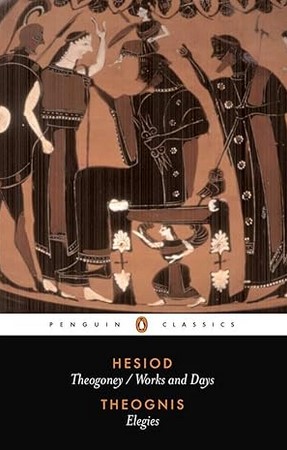
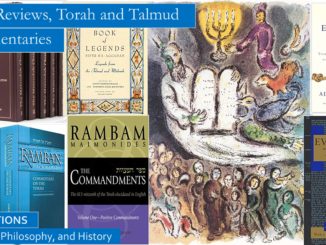
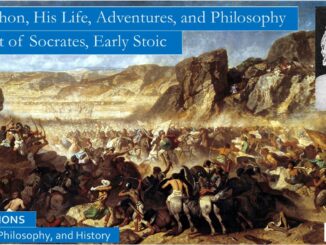
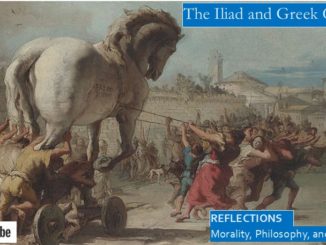
3 Trackbacks / Pingbacks